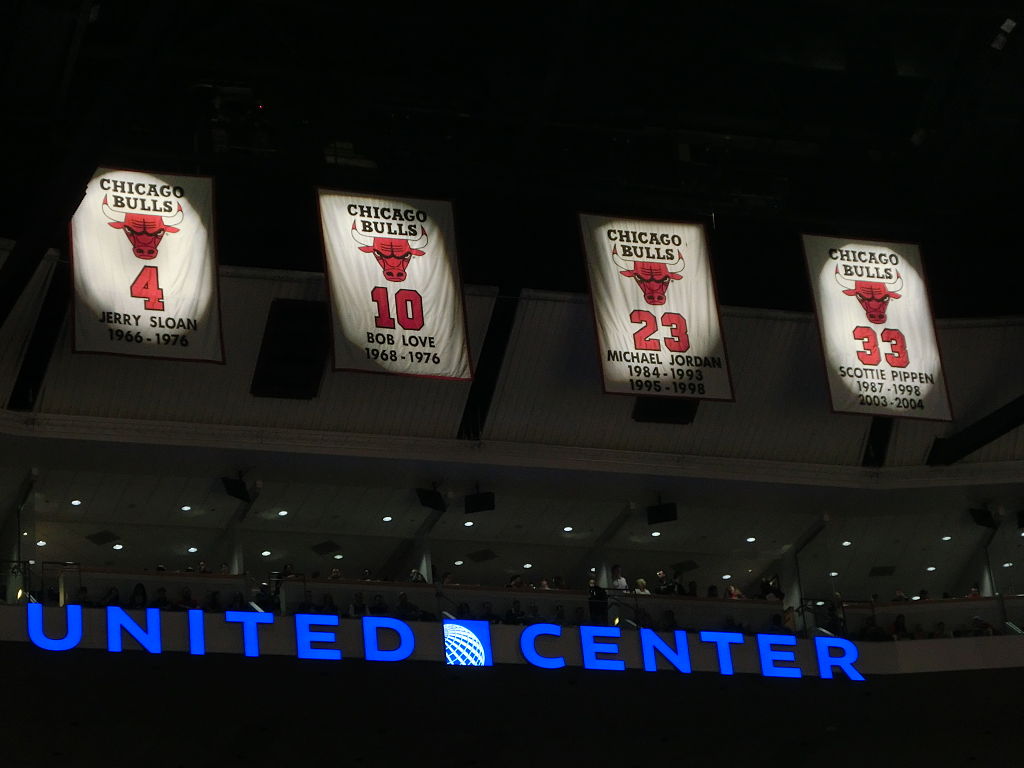‘The Last Dance’: second week is a story of coaching genius
Episodes three and four of The Last Dance were made available on Netflix this week, as the series turned its attention to Dennis Rodman – an integral member of the Bulls’ dynasty. Scottie Pippen’s absence from the roster continues to malign Chicago, with the Bulls sinking to eight defeats in their first fifteen games of the 1998 season.
The Bulls’ form started to turn once the enigmatic Rodman began to play at a higher level. “Dennis is what held [the Bulls] together while Scottie was out,” according to head coach Phil Jackson: he isn’t wrong. Rodman’s childhood forms an integral part of episode three, with him admitting that, in the 1970s, he “could’ve been a drug-dealer, [he] could’ve been anything.”
Rodman was picked 27th in the 1986 NBA Draft by the Detroit Pistons, where he had a great relationship with the franchise’s head coach, Chuck Daly. It was also in Detroit that Rodman gained a reputation as being a “trouble-maker” on court, becoming an increasingly important player in an increasingly physical team.
Collins’ efforts to rebuild the Bulls rested on the immense talents of Michael Jordan
Detroit’s reputation as the “bad boys” of the NBA exploded. In 1988, Rodman’s Pistons’ were crowned Eastern Conference champions. Meanwhile, the Bulls, who Rodman later joined via San Antonio, started to emerge from their slumber under the stewardship of Doug Collins. Collins’ efforts to rebuild the Bulls, however, rested on the immense talents of Michael Jordan, the league’s best player by a distance at the time.
By 1989, Cleveland and Chicago had emerged as the two main challengers to Detroit at the top of the Eastern Conference, with the sides meeting in the first round of the playoffs. Chicago won the series in the final three seconds of the deciding game, a victory credited for expunging the franchise’s losing mentality.
The Bulls were subsequently eliminated in the Eastern Conference final by the Pistons, in what was an exceptionally physical encounter. Hatred between the two franchises lives on to this day.
Speculation regarding Jordan’s plans for the future did not dissipate
After a turbulent stint in San Antonio, Rodman arrived in Chicago to a mixed reaction. Would his teammates and the team’s supporters welcome a player to the roster who had previously been a vital part of an organisation that the Bulls absolutely hated? It transpired that they would.
By January 1998, the Bulls had recovered from their poor start and sat top of the East. Speculation regarding Jordan’s plans for the future, however, did not dissipate. Especially on the road, Jordan was met with a barrage of questions about his rumoured retirement after every game. Pippen, meanwhile, returned to the court in January after his prolonged dispute with Jerry Krause had deescalated.
Upon Pippen’s return, Rodman’s attitude disintegrated. In an attempt to “let loose”, Rodman requested leave to go on a midseason “vacation”. Against Jordan’s warnings, Rodman was granted two days leave. Upon his delayed return from Las Vegas, Rodman’s mindset had recovered, his focus was restored. The episode’s coverage of Rodman is the most insightful moment of the series so far, shining the spotlight on a character wildly misunderstood by many of his contemporaries.
Jackson has always been removed from the typical figures of the NBA
In episode four, Jackson’s approach to basketball becomes the focus of the series. Jackson has always been removed from the typical figures of the NBA – a maverick during his time as a player, with the New York Knicks, and as a coach – but The Last Dance highlights just how committed he was to improving team cohesion under his watch in Chiacago.
Jackson’s coaching philosophy emphasises the importance of the team over the individual; his appointment as head coach intended to reduce the strain on Jordan. Jackson’s triangle offence changed the Bulls fortunes, especially against the Pistons. In 1991, the Bulls’ climb had become self-evident. In the Conference Finals, Chicago swept the series against Detroit, sparking the outgoing NBA champions to walk from the court without shaking the hands of the victorious Bulls, an insult that continues to hold sway to this day.
The Bulls’ progression to the NBA Finals allowed Jordan to finally dispel the narrative that he could win only individual accolades. In game five, Jackson’s order for Jordan to feed John Paxon the ball proved instrumental to his side’s victory over the Lakers – finally pushing the Bulls over the line. It was telling that much of the insight about the Bulls’ maiden triumph focussed on the Jordan’s emotional response: this was a franchise that had finally discovered its magic touch.
Episode four, however, ends with Jordan’s damning refusal to play for another coach, besides Jackson, in 1998. With Krause increasingly desperate to force Jackson out, the episode concludes with tensions rising once again at the United Center. We all know the final outcome, but The Last Dance continues to hold its audience gripped to the core regardless. Once again, Netflix and ESPN have hit a home run.

Comments